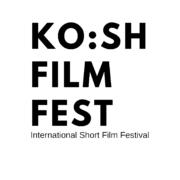
How to Arrive in Korça
Korça is located in the southeast of Albania, close to the borders with Greece and North Macedonia, and can be reached easily from several directions.
From Tirana, Albania
-
By Bus/Minibus:
-
Regular buses depart from Tirana (Regional Bus Terminal, 7–8 km from city center).
-
Travel time: 3–3.5 hours.
-
Cost: around 7 one way ticket.
-
-
By Car:
-
Distance: ~ 165 km.
-
Route: Tirana → Elbasan → Pogradec → Korça.
-
Travel time: 2.5 – 3 hours
-
From Ohrid, North Macedonia
-
By Bus/Minibus:
-
Regular minibuses from Ohrid to Pogradec (border town), then connect to Korça.
-
Travel time: 2–2.5 hours.
-
-
By Car:
-
Distance: ~ 70 km.
-
Route: Ohrid → Qafë Thanë border crossing → Pogradec → Korça.
-
Travel time: 1.5–2 hours.
-
From Thessaloniki, Greece
-
By Bus:
-
Direct buses from Thessaloniki to Korça (operate a few times per week).
-
Travel time: 5–6 hours.
-
-
By Car:
-
Distance: ~ 260 km.
-
Route: Thessaloniki → Florina → Kapshticë border crossing → Korça.
-
Travel time: 4.5–5 hours.
-
Nearest Airports
-
Tirana International Airport (TIA): 2.5 – 3 hours drive to Korça.
-
Ohrid Airport (OHD, North Macedonia): ~1.5 hours drive.
-
Thessaloniki Airport (SKG, Greece): ~5 hours drive.
